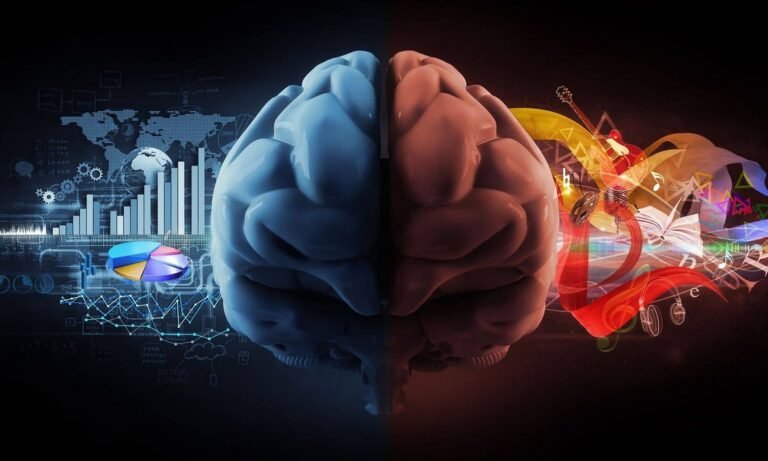Addiction is a multifaceted phenomenon that transcends simple habit-forming behaviors. At its core, addiction represents a complex interplay of psychological, physiological, and environmental factors. It is commonly categorized into three main types: physical dependence, psychological dependence, and behavioral addiction. Understanding these distinctions is crucial for comprehending the broader concept of addiction.
Physical dependence is the body’s adaptation to a substance, leading to withdrawal symptoms when it’s absent. This often arises from prolonged drug or alcohol use, perpetuating the cycle of substance use. Psychological dependence is the emotional and mental reliance on a substance or behavior, driven by the need for coping mechanisms or emotional relief, such as using drugs or alcohol to escape troubling emotions.
Behavioral addiction involves compulsive engagement in behaviors despite negative consequences. For example, gambling addiction shows how individuals can develop a dependence on the thrill of betting, causing distress and disruption. The brain’s reward system, involving neurotransmitters like dopamine, plays a key role in fostering both physical and psychological dependence.
Real-world examples illustrate the intricacies involved in addiction. From the challenges of overcoming alcohol dependence to the relentless pull of gambling, addiction manifests in numerous forms, affecting individuals from all walks of life. By acknowledging the complexity of addiction, it becomes evident that effective treatment must address both the physical and psychological dimensions of dependence.
Substance Addictions: Alcohol, Drugs, and Beyond
Substance use disorders are among the most prevalent forms of addiction, encompassing a diverse range of substances that can lead to significant physical and psychological dependence. The broad categories of substance addictions include alcohol, prescription medications, and illicit drugs such as cocaine, heroin, and methamphetamines. Each category presents unique challenges and impacts on individuals and communities.
Alcohol addiction, often referred to as alcoholism, affects millions globally. According to the World Health Organization, over 200 million people are estimated to suffer from alcohol use disorders. This form of addiction can result in a variety of physical health complications, including liver disease, cardiovascular problems, and neurological impairments. Common signs of alcohol addiction include an increased tolerance, withdrawal symptoms, and a strong desire to consume alcohol despite negative consequences.
Prescription medication addiction is another rising concern, particularly regarding opioids, benzodiazepines, and stimulants. The National Institute on Drug Abuse reports that nearly 21-29% of patients prescribed opioids may develop an addiction. Symptoms often manifest as compulsive use, frequent doctor visits, and engaging in risky behaviors to obtain medications. The repercussions of this addiction extend beyond the individual, influencing public health and economic stability.
Illicit drugs, including cocaine and heroin, pose critical challenges as well. Cocaine is a powerful stimulant that can lead to long-lasting psychological changes and cardiovascular issues, while heroin is an opioid that leads to severe physical dependence and withdrawal challenges. Anecdotal evidence suggests that, for many, the journey into illicit drug use begins with the misuse of prescribed medications.
The stigma associated with substance addiction complicates the recovery process. Many individuals struggling with addiction face judgment and discrimination, which often hinders their willingness to seek help. Addressing the social implications of substance use disorders is essential for fostering a supportive environment conducive to recovery. Overall, understanding the nature of substance addictions and their broader societal impact is crucial for developing effective prevention and intervention strategies.
Behavioral Addictions: The Rise of Non-Substance Dependencies
Behavioral addictions have gained significant attention in recent years as society becomes increasingly aware of compulsive behaviors that do not involve substances but nonetheless can lead to detrimental consequences. These addictions encompass a range of activities, including gambling, internet use, gaming, and shopping. Each activity has unique psychological mechanisms that drive individuals to engage in repeated and often harmful patterns. Unlike substance addiction, which revolves around chemical dependency, behavioral addictions are characterized by an overwhelming compulsion to partake in specific activities despite the adverse effects on one’s life.
One of the primary psychological mechanisms at play in behavioral addictions is the reward system of the brain, similar to that seen in substance-related dependencies. Engaging in these behaviors can trigger the release of neurotransmitters, such as dopamine, which creates feelings of pleasure and reinforces the behavior. Over time, this can lead to a cycle where individuals require increasingly engaging and intense experiences to achieve the same level of satisfaction, further entrenching their compulsive behaviors.
The growing recognition of behavioral addictions within the medical and psychological communities has prompted the development of diagnostic criteria, much like those established for substance use disorders. For instance, the Diagnostic and Statistical Manual of Mental Disorders (DSM-5) classifies Internet Gaming Disorder as a condition worthy of further study, highlighting the need for systematic approaches to assess and treat such addictions. Treatment options have evolved and may include cognitive-behavioral therapy, support groups, and lifestyle changes aimed at reducing the compulsive urge to engage in these activities.
Real-world examples underscore the seriousness of behavioral addictions. Many individuals have faced significant challenges, such as financial ruin due to gambling, deteriorating relationships stemming from excessive internet use, or accumulated debt from compulsive shopping. These cases exemplify the profound impact behavioral addiction can have on individuals, families, and communities, warranting continued research and interventions.
The Causes
A Multifaceted Perspective
Addiction is a complex phenomenon influenced by a multitude of factors, encompassing genetic, environmental, and psychological elements. Understanding these causes is crucial in grasping the intricacies of addiction and how various components contribute to an individual’s dependence on substances or behaviors. Genetic predisposition plays a significant role; research indicates that certain individuals may inherit traits that increase their vulnerability to addiction. For instance, the presence of specific genes has been linked to the propensity for substance abuse, suggesting a biological underpinning that individuals may struggle against.
Environmental influences also shape the landscape of addiction. Factors such as socio-economic status, accessibility to substances, and peer pressure can greatly enhance the likelihood of developing addictive behaviors. Childhood experiences, including exposure to trauma or instability, can significantly impact an individual’s capacity to manage stress and emotional challenges, leading to increased dependence on coping mechanisms like drugs or alcohol. Moreover, social settings often dictate the norms around substance use, creating environments that either promote or hinder addictive behaviors.
Psychological conditions, such as anxiety, depression, and post-traumatic stress disorder (PTSD), further complicate the landscape of addiction. Individuals struggling with these mental health issues may find themselves using substances as a method of self-medication, exemplifying the interplay between psychological distress and addiction. This cycle of dependence can create a formidable barrier to recovery, as underlying mental health issues remain unaddressed. Therefore, it is vital to comprehend that addiction is not the result of a singular cause; rather, it is a convergence of genetic makeup, environmental factors, and psychological conditions that collectively foster the development of dependence.
Ultimately, recognizing this multifaceted nature can pave the way for more effective treatment strategies. By understanding the diverse factors contributing to the issue, perhaps healthcare providers can develop more personalized and targeted interventions. This holistic approach enhances the likelihood of successful outcomes and fosters a deeper understanding of the underlying complexities involved.
The Impact
Consequences on Individuals and Society
Addiction encompasses various forms of dependence, significantly affecting both individuals and the wider community. At the personal level, individuals who struggle with addiction often experience severe physical health problems, emotional distress, and a decline in mental well-being. The physical consequences may include chronic diseases, organ damage, and, in some cases, even fatal outcomes. Emotionally, those affected frequently encounter feelings of guilt, shame, and isolation, leading to a cycle of dependence that can be difficult to break.
The ramifications of addiction extend beyond the individual to families and communities. Family members may endure emotional turmoil, financial strain, and social stigma related to a loved one’s substance use. This creates an environment fraught with conflict and distress, often leading to altered dynamics and social withdrawal. Over time, the resulting relational dysfunction can have lasting impacts on children, potentially perpetuating a cycle of dependence through learned behaviors and environmental factors.
From a broader perspective, addiction imposes significant costs on society. The financial burdens are evident in heightened healthcare expenses as increased resources are allocated to treat the myriad of health issues stemming from substance use. Additionally, addiction correlates with elevated crime rates as individuals engage in illicit activities to sustain their dependence. The loss of productivity in the workplace is another concerning consequence, as employees struggling with addiction may face absenteeism or impaired work performance. These societal costs highlight the urgent need for comprehensive strategies to address addiction, targeting prevention, treatment, and support services.
Pathways to Recovery
Understanding Treatment and Support
Recovery from addiction is a multifaceted process that requires a comprehensive approach. The journey often begins with understanding the different treatment modalities available, which can vary based on individual needs, substance dependence, and personal circumstances. Key among these approaches are behavioral therapies, medication-assisted treatment, and support groups.
Behavioral therapies play a crucial role in recovery by addressing the cognitive and emotional aspects of dependence. Techniques such as cognitive-behavioral therapy (CBT) help individuals identify and change negative thought patterns that contribute to their addiction. This form of therapy also teaches coping strategies, making it an essential component of comprehensive addiction treatment.
Medication-assisted treatment (MAT) combines pharmacological and therapeutic interventions to address opioid and alcohol dependencies effectively. Medications like methadone, buprenorphine, and naltrexone can alleviate cravings and withdrawal symptoms, increasing the chances of recovery when combined with behavioral therapy. This integrated approach acknowledges addiction as a complex disease that often necessitates more than just therapeutic support.
Support groups, such as Alcoholics Anonymous (AA) and Narcotics Anonymous (NA), provide vital community support, fostering a sense of belonging among those facing similar challenges. These organizations utilize a 12-step program encouraging participants to address their addiction through shared experiences, helping to reduce feelings of isolation that can accompany dependence.
Moreover, a holistic approach to recovery underscores the importance of addressing mental, emotional, and physical health. This includes nutrition, exercise, and stress management, which can significantly bolster recovery efforts. Aftercare and ongoing community support also play critical roles in maintaining sobriety and preventing relapse, offering individuals the continuing resources needed to navigate their recovery journey successfully.
What’s More
The posts in My Blog feature reflective, story-driven pieces rooted in personal and societal insights.
The topics in My Interests explore abstract, philosophical ideas and their cultural and societal impact.
👁️ 6,153 Views
















